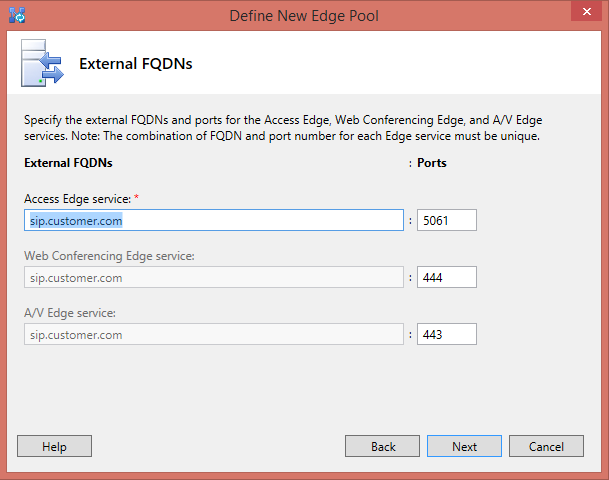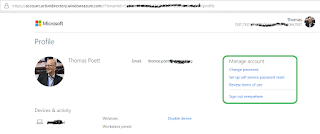Microsoft Teams Direct Routing (Connect your own SBC for PSTN), including Direct Carrier Support
As in the general availability:
Microsoft Teams will support a Direct SIP connection (bring your own SIP) with SBCs on-premise.
Requirements:
You will require a certified SBC from Ribbon (Sonus) or AudioCodes
Other SBC vendors may be added in the future
Microsoft Teams and Phone System licences, or E5 license
Besides the primary Direct Routing scenario, we anticipate customers will want to use this capability to integrate with other 3rd party voice applications. There are several additional scenarios:
Easy Transition to Calling in Teams. By integrating with an existing PBX, pilot users can be moved to Calling in Teams while users remain on their legacy PBX. Eventually all users can be easily transitioned to Calling in Teams. The call traffic between these users during the transition stay within the organization.
Telephony System Inter/Op. While users are being transitioned to Calling in Teams, Call Center agents can continue to use their application. Direct Routing enables both use cases to coexist. The call traffic between call center agents and Teams users stay within the organization.
Support for Analog Devices. If an organization decides to move to Calling in Teams but has analog devices such as elevator phones or overhead pagers, these devices can be connected to Teams and Phone System via Direct Routing. Call traffic between analog devices and Teams users stay within the organization.
Microsoft will certify select SBC vendors to insure they are compatible with our Direct Routing guidelines. We will start with AudioCodes, Ribbon Communications, and ThinkTel. Our plan is to continue to evaluate SBC vendors and certify as needed.
It’s important to note that Direct Routing is designed to work with Microsoft Teams. Customers using Skype for Business Online should continue to use Cloud Connector Edition (CCE) or connect via or a on-premises SFB Pool for their SIP trunk connection needs.
Getting started with Calling in Teams
If you are new to Teams, please review our quick start guide. We also invite you to mark your calendars for March 22 for a Teams on Air episode with guest Nikolay Muravlyannikov, Sr. Program Manager where he will discuss Direct Routing in more detail.
(Blog Post Reference: https://techcommunity.microsoft.com/t5/Microsoft-Teams-Blog/Direct-Routing-enables-new-enterprise-voice-options-in-Microsoft/ba-p/170450)
Microsoft Teams will support a Direct SIP connection (bring your own SIP) with SBCs on-premise.
Requirements:
Besides the primary Direct Routing scenario, we anticipate customers will want to use this capability to integrate with other 3rd party voice applications. There are several additional scenarios:
Easy Transition to Calling in Teams. By integrating with an existing PBX, pilot users can be moved to Calling in Teams while users remain on their legacy PBX. Eventually all users can be easily transitioned to Calling in Teams. The call traffic between these users during the transition stay within the organization.
Telephony System Inter/Op. While users are being transitioned to Calling in Teams, Call Center agents can continue to use their application. Direct Routing enables both use cases to coexist. The call traffic between call center agents and Teams users stay within the organization.
Support for Analog Devices. If an organization decides to move to Calling in Teams but has analog devices such as elevator phones or overhead pagers, these devices can be connected to Teams and Phone System via Direct Routing. Call traffic between analog devices and Teams users stay within the organization.
Microsoft will certify select SBC vendors to insure they are compatible with our Direct Routing guidelines. We will start with AudioCodes, Ribbon Communications, and ThinkTel. Our plan is to continue to evaluate SBC vendors and certify as needed.
It’s important to note that Direct Routing is designed to work with Microsoft Teams. Customers using Skype for Business Online should continue to use Cloud Connector Edition (CCE) or connect via or a on-premises SFB Pool for their SIP trunk connection needs.
Getting started with Calling in Teams
If you are new to Teams, please review our quick start guide. We also invite you to mark your calendars for March 22 for a Teams on Air episode with guest Nikolay Muravlyannikov, Sr. Program Manager where he will discuss Direct Routing in more detail.
(Blog Post Reference: https://techcommunity.microsoft.com/t5/Microsoft-Teams-Blog/Direct-Routing-enables-new-enterprise-voice-options-in-Microsoft/ba-p/170450)




Comments
Post a Comment